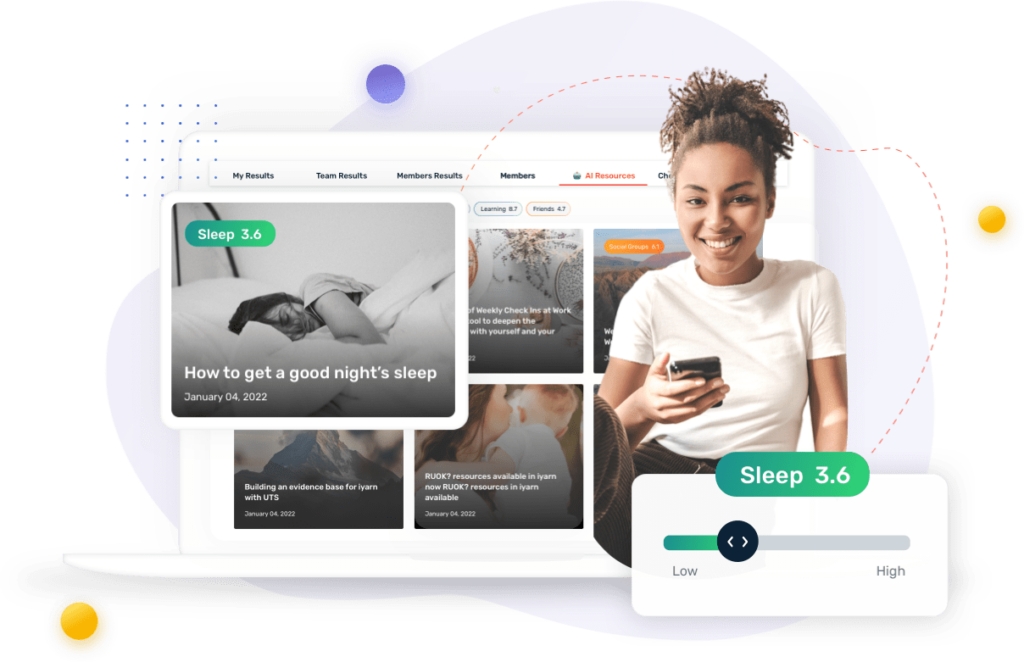iyarn Talks Self Care
Self-care is absolutely vital in the modern world, but its not easy for the everyday person in the community to take charge of their health.
Definition of Self Care
The definition of self-care has evolved over time. For World Health Day 2013, the World Health Organisation produced the following definition; “self-care is the ability of individuals, families and communities to promote health, prevent disease, and maintain health and to cope with illness and disability with or without the support of a health-care provider.”
A Changing Health Landscape
Approaches to health and wellness are changing across the globe. In early 2018 the Australian Health Policy Collaboration (AHPC) at Victoria University commissioned an investigation into self-care in response to the rising tide of chronic disease in Australia. In the 21st century, a significant portion of the population have become less vulnerable to acute illness but more likely to suffer with chronic health conditions, and in that light, Governments around the world are grappling with re-imagining a healthcare system that has been organised around acute disease for hundreds of years.
In the midst of these changes, the relationship we have with healthcare providers, practitioners and the healthcare system overall need to develop and change.
“A healthy population is achieved through a functional relationship between active and informed individuals, health care services that empower and support people, and governments that invest in the capabilities of individuals and communities to look after their health.”
Challenges to Self Care
The report shows that many people lack skills and confidence in managing their own health and health care. According to the report, lack of ‘activation’ in self-care is a better predictor of adverse health outcomes than traditional socio-economic factors such as ethnicity or age.
The Benefits of Self Care
Self care plays an important role in our lives!
- Greater awareness of the role of self-care can prevent these emergency trips to the doctor.
- Self-care plays a role in managing minor illnesses, such as using over the counter medications correctly and responsibly.
- Self-care contributes to preventing infections and chronic diseases, improving physical health, mental health and wellbeing, recovery from acute conditions and trauma, and enabling people to live with chronic health problems.
The more we understand about the wide-ranging and changeable nature of our own health, the more we can improve our own, and our communities, health outcomes. Unfortunately, as we grow up we tend to loose lots of little habits that help keep us healthy.
The Resurrection of Self Care in Australia
Historically, Australian governments have had a strong presence in health promotion. In 1947 the Federal government passed the National Fitness Act to improve the fitness of Australian youth and better prepare them for jobs in the armed services and industry. The Act was repealed in 1994 as fitness became associated with leisure and recreation rather than critical to everyday life and work.
As a result, Australia fell off the horse in population level prevention and self-care. Moodie et al. (2016) concludes that “Australia has had some outstanding successes in areas such as smoking, road trauma and heart disease. However, we lack a sustained, comprehensive and strategic approach to prevention.”
It appears that Australia is undergoing a resurrection of self-care. However the inertia of taking society led initiatives through to effective, widespread policy means we will likely be responsible for promoting our own self-care for some time. Research undertaken in the European Union suggests that people want more independence and responsibility in the management of their health. But they require more information about options, risks and about what constitutes responsible self-care.
A Potential Role for Technology
Technology is making it easier than ever before to find out about our health, but it has also increased the misinformation available. Technology can play a role in supporting self care, by capturing data and making it accessible, highlighting potential issues and referring the public to suitable resources and services.




